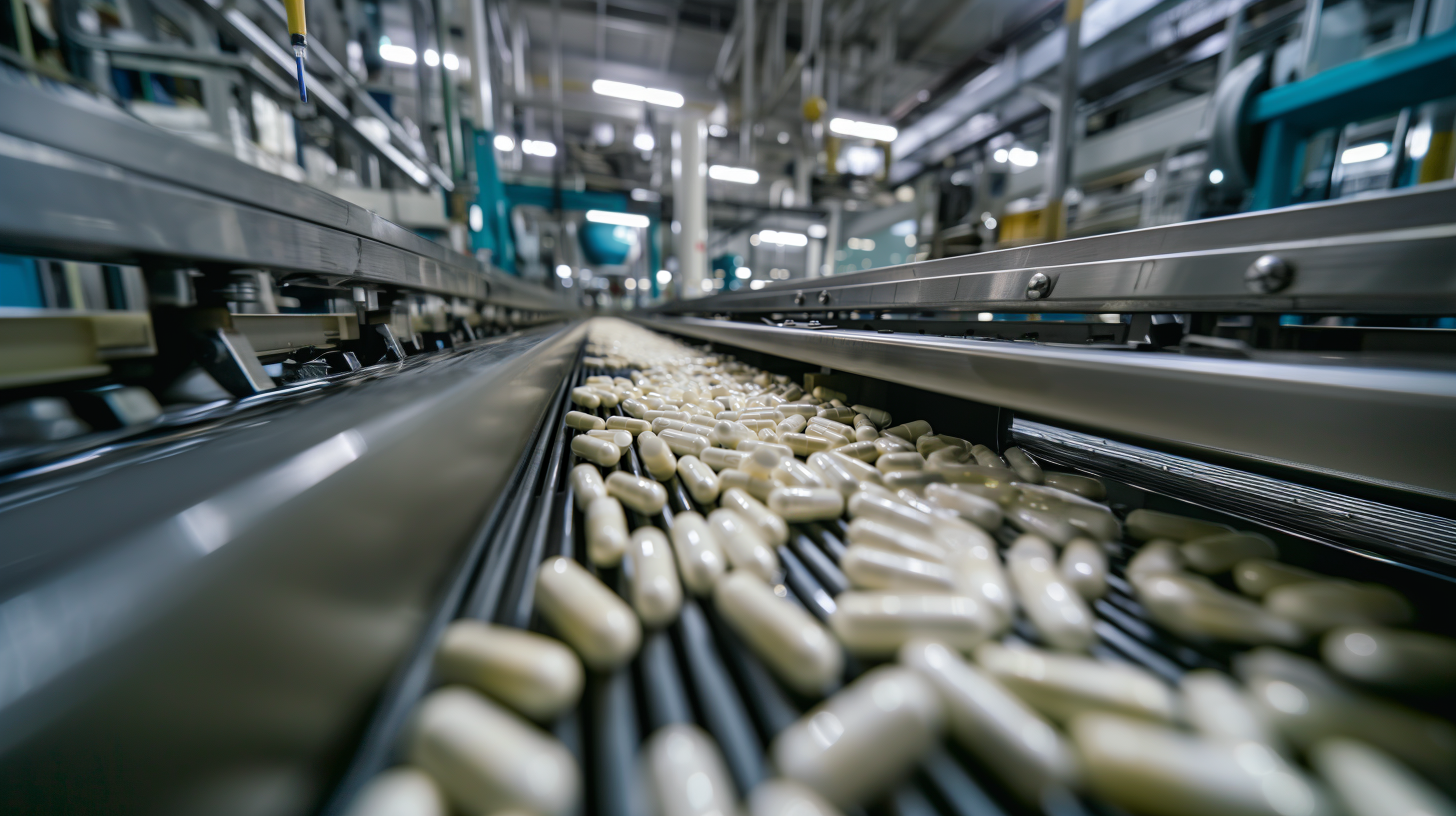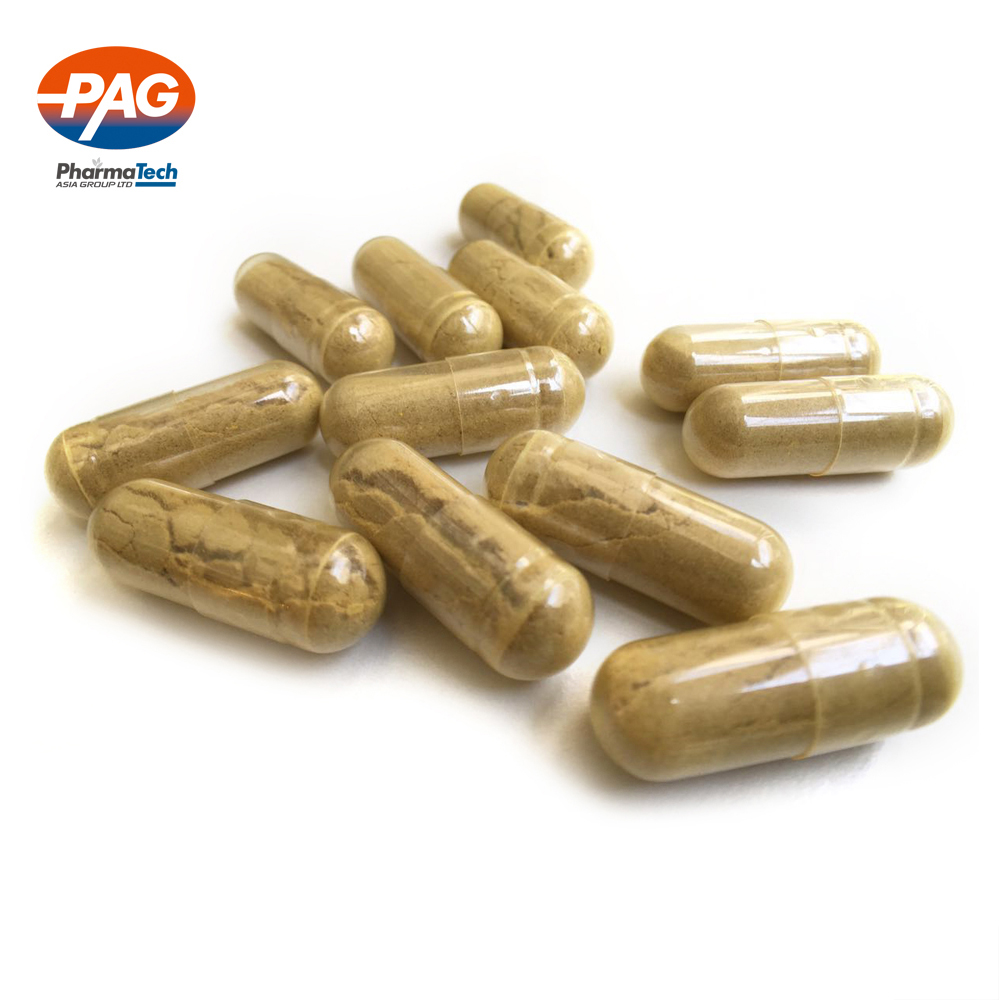
16 Apr Common Challenges in Capsule Manufacturing
Capsule Manufacturing
The manufacturing of capsules, whether for pharmaceuticals, dietary supplements, or other applications, is a complex process with custom formulation and its unique set of challenges. To produce high-quality capsules consistently, manufacturers must navigate various hurdles along the way. In this article, we delve into the common problems encountered during the manufacturing of capsules and explore potential solutions, helping prospective buyers of automatic capsule filling machines to understand the intricacies of this process.
Introduction
Capsules are a widely used pharmaceutical dosage form, known for their versatility and ease of administration. However, the manufacturing process of capsules can be complex, and various challenges can arise during production. This article aims to address common problems encountered during the manufacturing process of capsules, providing insights for potential buyers of capsule filling machines.

I. Inconsistent Dosage Uniformity in capsule manufacturing process
Problem: Variability in the amount of active pharmaceutical ingredient (API) within capsules.
Causes: Inadequate mixing of powders, improper filling, or equipment calibration issues.
Solutions: Implementing thorough mixing techniques, using precision dosing systems, and regularly calibrating equipment.
II. hard gelatin Capsules Shell Integrity
Problem: Capsule shells can sometimes crack, leak, or become brittle during filling capsules.
Causes: Inadequate shell formulation, improper storage conditions, or excessive mechanical stress during handling.
Solutions: Using high-quality gelatin and shell materials, controlling storage humidity and temperature, and handling capsules gently.
III. Cross-Contamination
Problem: Unintended mixing of different ingredients, leading to contamination of capsules.
Causes: Inadequate cleaning between production runs, improper segregation of materials, or equipment design flaws.
Solutions: Implementing rigorous cleaning protocols, ensuring proper material handling, and using equipment with minimized contact surfaces.

IV. Machine Downtime
Problem: For capsule manufacturers, Frequent breakdowns or maintenance requirements leading to production delays.
Causes: Aging equipment, lack of preventive maintenance, or inadequate training of machine operators.
Solutions: Investing in modern and reliable machinery, establishing a proactive maintenance schedule, and providing comprehensive training.
V. Regulatory Compliance
Problem: Non-compliance with regulatory standards, resulting in product recalls or legal issues.
Causes: Inadequate documentation, poor quality control, or failure to meet GMP requirements.
Solutions: Strict adherence to regulatory guidelines, comprehensive record-keeping, and investment in compliant equipment.
VI. Environmental Impact
Problem: In pharmaceutical products industry, manufacturing environment is quite important.The capsule manufacturing process can have environmental consequences, such as the use of energy and water resources, as well as the generation of waste.
Causes: Inefficient production methods, lack of sustainable practices, and inadequate waste management.
Solutions: Implementing eco-friendly manufacturing processes, optimizing resource usage, and adopting sustainable packaging solutions for capsule products can help mitigate the environmental impact of the capsule manufacturing process.
VII. Quality Control Challenges
Problem: Maintaining consistent, high quality raw materials in every batch of capsules can be challenging.
Causes: Variations in the raw material melting, materials, equipment performance, and human error.
Solutions: Implementing rigorous quality control procedures, conducting thorough inspections of capsule samples, and investing in quality assurance technology can help ensure that each batch of capsules meets the required quality standards.
VIII. Cost Management
Problem: Controlling production costs while maintaining high-quality standards can be a delicate balancing act.
Causes: Fluctuations in raw material prices, energy costs, and labor expenses.
Solutions: Implementing cost-effective manufacturing processes, negotiating favorable supplier agreements, and investing in automation can help manage production costs without compromising quality.

IX. Research and Development
Problem: Staying competitive in the capsule market requires continuous research and development efforts.
Causes: Evolving customer preferences, changing regulatory requirements, and advancements in capsule technology.
Solutions: Allocating resources for research and development, collaborating with industry experts, and staying informed about market trends can help manufacturers innovate and stay ahead of the competition.
X. Supply Chain Management
Problem: Ensuring a stable supply of raw materials and components for the capsule production process can be challenging to a serious capsule manufacturing manufacturer.
Causes: Supply chain disruptions, transportation issues, and supplier reliability.
Solutions: Diversifying suppliers, maintaining buffer stocks, and implementing robust supply chain management practices can help minimize disruptions and ensure a steady flow of materials.
the manufacturing of capsules and tablets is a multifaceted process with various challenges that demand careful consideration and proactive solutions. Prospective buyers of capsule filling machines should recognize these common issues and take them into account when planning their manufacturing processes. By addressing these challenges effectively, manufacturers of capsule type, can not only produce more high quality product-quality capsules but also position themselves competitively in the pharmaceutical and dietary supplement industries.
XI. Manufacture Liquid Capsules
Problem: How can uniform distribution of the drug and the integrity of the capsule shell be ensured during the manufacture of liquid capsules?
Causes: To these liquid filled hard capsules ,The nature of liquid drugs makes uniform filling challenging, and the capsule shell material must be compatible with the drug.
Solutions: Utilize precise filling and packaging techniques to ensure even distribution of liquid drugs and select shell materials compatible with the drug to maintain capsule integrity.
XII. Vegetarian Capsules vs. Empty Gelatin Capsules
Problem: When it comes to capsule manufacturing, choosing the right type of empty capsules that suit your needs is a critical consideration.
Causes: Empty capsules can be made from a variety of materials, each with its own characteristics. Vegetarian capsules are typically crafted from natural materials like cellulose, while empty gelatin capsules use animal-derived gelatin.
Solutions: Select the appropriate type of capsule based on product requirements and audience preferences, ensuring compatibility with the medication.
In capsule manufacturing, the choice between vegetarian capsules and empty gelatin capsules is significant. Each has its distinct advantages. Vegetarian capsules are often favored by vegetarians and individuals with sensitivities to animal-derived products, while gelatin capsules generally offer better flow properties during the manufacturing process. The selection of the right capsule type can impact drug delivery and absorption, making it a decision that requires careful consideration.
Conclusion
Manufacturing capsules is a precise and delicate process that requires careful attention to detail and adherence to strict quality standards. However, by addressing these common challenges effectively, manufacturers can produce high-quality capsules that meet the needs of both patients and regulatory agencies.
Capsule manufacturing, while highly efficient, can present various challenges that affect product quality and compliance with quality requirements. Potential buyers of both capsule manufacturing machines and filling machines should be aware of these common issues and consider them when selecting equipment and implementing production processes. Addressing these challenges effectively is crucial to ensuring the consistent production of high-quality capsules.
